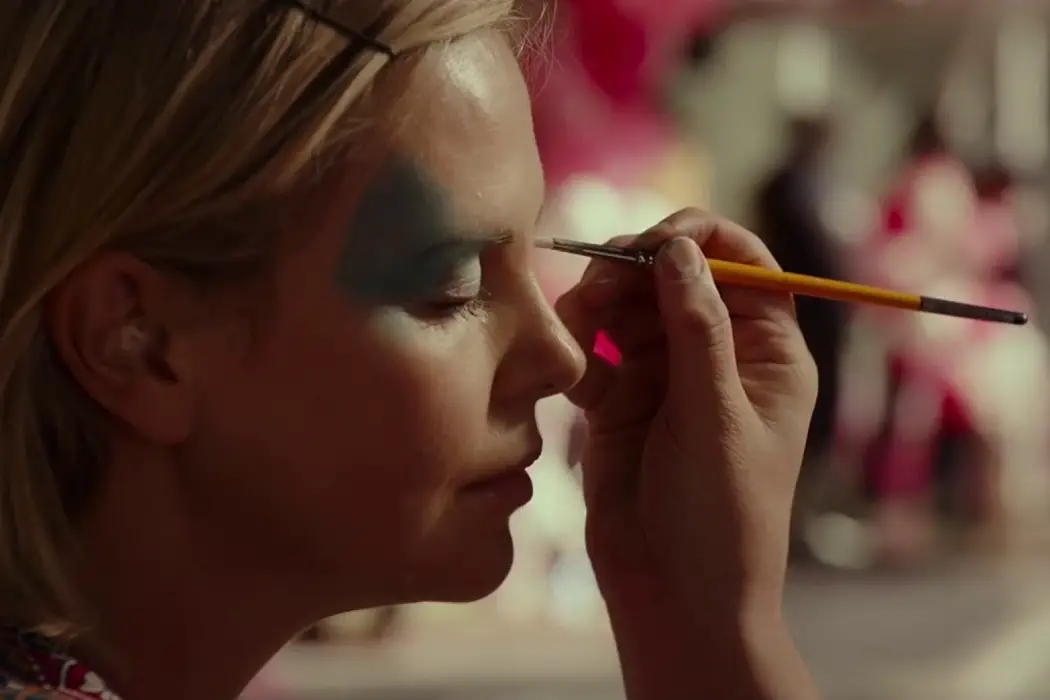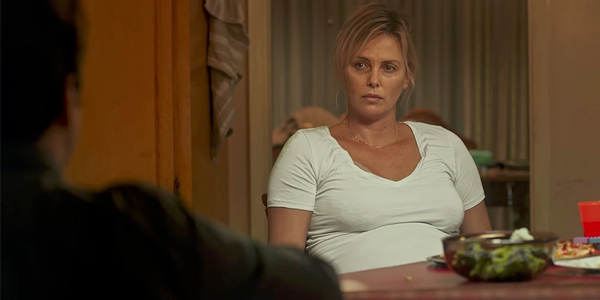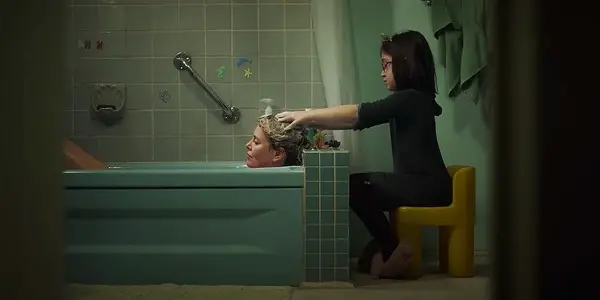TULLY: The Chronicles Of A Full Time Mommy

Alex is a 28 year-old West Australian who has a…
Director Jason Reitman has repeatedly featured protagonists who have a slavish devotion to occupations that not only make them miserable, but act as their only function in society, stripped of any steady companionship or enduring pride for their life’s work.
Whether it be promoting cigarette smoking in Thank You for Smoking, being a corporate downsizer in Up in the Air or even an undisclosed author for a failing children’s book series in Young Adult, Reitman’s diverse filmography contains a strikingly recurring thread of themes that are evident again in Tully. In his third collaboration with Academy Award winning screenwriter Diablo Cody, Reitman has focused on a protagonist who some say have the hardest job of all – being a loving mother, or as some friends on Facebook might define it: “Full Time Mommy”.
Tully is Mary Poppins for the modern age, an unflinchingly realistic examination on the struggles of being a mother, and what giving a life can do to yourself, both physically and mentally. Those who demanded a sequel to the first Reitman/Cody joint, Juno, may find some solace here, as the uncommonly-titled Tully feels like the candid follow-up to Ellen Page’s pregnancy from the 2007 game-changing comedy. Not only do they share similar maternal themes, but Tully is just as funny and consistently sardonic, with Cody’s script matching every authentic observation with an amusing wisecrack.
Pregnancy Problems
With the illusion of parenthood being a joyful existence shattered after raising two kids, Marlo (Charlize Theron, giving another terrific performance for Reitman) is on the cusp of starting the cycle again with her third pregnancy with her video-game obsessed husband Drew (Ron Livingston). What was once an exciting and unpredictable experience is treated as a burden for the sleep-deprived Marlo, who is not only struggling with her upcoming birth, but with the troubles of her existing children.
Her daughter Sarah (Lia Frankland) has reached the age of becoming insecure about herself, and her son Jonah’s (Asher Miles Fallica) undefined special needs (crudely described as “quirky” by his principal), including in-car freak-outs that feel chillingly reminiscent of The Babadook, have forced Marlo to find him a new school.

After noticing her impending breakdown (it’s hinted that Marlo suffered postpartum depression after Jonah’s birth), her wealthy brother Craig (Mark Duplass) decides to pay for a night nurse when the new baby is born, a private service that would see someone care for the child throughout the night, giving Marlo some much needed sleep. In a modest gesture, Marlo initially rejects his offer, and shortly after, her new daughter is born.
In one of the film’s most ingenious moments, the repetitive banality of dealing with the newborn is skilfully woven into a rhythmic ballad of escalating irritation by editor Stefan Grube, turning the simple act of placing nappies into a bin into a pulsating drum beat. Its this type of fluid film-making that makes Tully an easy watch, smoothly guiding the audience into Marlo’s increasingly anxious headspace, which makes Tully’s eventual appearance presented with a genuine feeling of alleviation and narrative necessity, rather than a product of forced story-telling.
Once Marlo finally calls the night nurse service, we finally meet Tully, who is played by Mackenzie Davis (last seen in Blade Runner 2049), an unbridled lightning rod of positivity and irrelevant anecdotes, dispensing as many pointless facts as any Aaron Sorkin protagonist, who immediately shakes up Marlo’s tedious lifestyle of reality TV and poor diet choices. After just one night of work, Marlo’s entire house is cleaned, she has her first great sleep in several years and is already a different person to the one we met at the start of the picture.

To call Tully a manic pixie dream girl is fitting (it seems like her whole existence centres around being a great babysitter), but one feels that Diablo Cody has written the character in such an intentional nature, especially when juxtapositioned to the more complex, lived in character of Marlo. With Tully acting as a youthful reflection of Marlo’s faded happiness and discarded innocence, the two quickly bond throughout the recurring nights, slowly bringing out the best qualities in them both.
A Very Hipster Mary Poppins
Diablo Cody’s script shows an intense awareness of her target audience, delivering a tale that feels like a gentle hand on the shoulder for every mother out there who can relate to Marlo’s struggles. Along with Eric Steelberg’s effectively candid cinematography, she precisely portrays motherhood stripped of any melodramatic panache, detailing the life of raising a third child with prosaic accuracy.
Whether it be displaying Theron’s post-pregnancy stomach or depicting the struggles of lactation, Cody frequently mines these aspects in order to heighten the grounded realism, and give a relatable, likeable quality to these characters, as none of these moments are used in a pejorative sense, because they add a necessary dimension to this suburban fairy tale.

Beyond the comedic non-sequiturs and poignant commentary lies an unwavering control with Jason Reitman’s directing, a subtle control that’s quite different to his flamboyant work in Juno and Thank You for Smoking. Those disappointed by his previous efforts Labour Day and Men, Women and Children should welcome a return to form here, as he dramatically guides Charlize Theron and the perfectly cast troupe of supporting actors through a series of engagingly grounded performances.
Unfortunately, the film falters when it decides to include a very late and unnecessary third act reveal, a lazy twist that makes its thematic content a bit too literal. What should’ve ended on a graceful, sentimental note instead diverts from its pragmatic framework into some frankly silly territory, an awkward area that the film had expertly avoided for the most part.
Tully: Conclusion
In their third collaboration, director Jason Reitman and writer Diablo Cody have struck gold again with Tully, a funny and genuine look at modern motherhood that feels like the grown-up Juno sequel we never got (but I’m sure studios demanded). Despite my soft spot for Jennifer’s Body, its quite obvious that these two collaborators are at their best when working together, as Reitman is able to effectively translate Cody’s sarcastic but sincere prose into absorbing material.
Despite a premise that welcomes comparisons to psychological thrillers of the past (Theron humorously makes a joke about it; an unconventional stranger who inserts themselves into the ideal nuclear family), Tully is an honest look at the tireless situation of one mother, that thanks to its sincerity and universal nature, speaks for the lives of so many others.
What do you think Jason Reitman’s filmography?
Does content like this matter to you?
Become a Member and support film journalism. Unlock access to all of Film Inquiry`s great articles. Join a community of like-minded readers who are passionate about cinema - get access to our private members Network, give back to independent filmmakers, and more.













